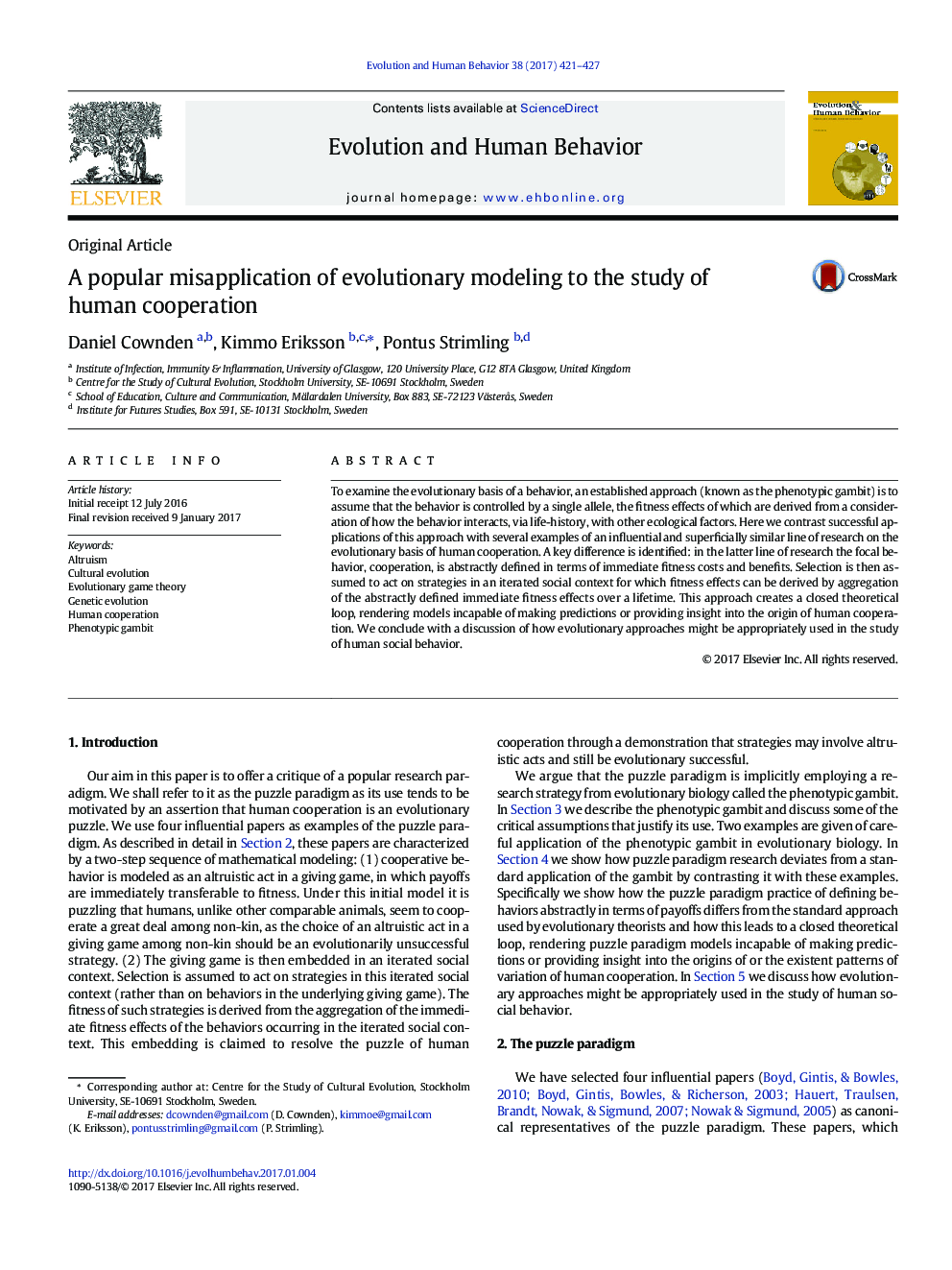| Article ID | Journal | Published Year | Pages | File Type |
|---|---|---|---|---|
| 5044784 | Evolution and Human Behavior | 2017 | 7 Pages |
To examine the evolutionary basis of a behavior, an established approach (known as the phenotypic gambit) is to assume that the behavior is controlled by a single allele, the fitness effects of which are derived from a consideration of how the behavior interacts, via life-history, with other ecological factors. Here we contrast successful applications of this approach with several examples of an influential and superficially similar line of research on the evolutionary basis of human cooperation. A key difference is identified: in the latter line of research the focal behavior, cooperation, is abstractly defined in terms of immediate fitness costs and benefits. Selection is then assumed to act on strategies in an iterated social context for which fitness effects can be derived by aggregation of the abstractly defined immediate fitness effects over a lifetime. This approach creates a closed theoretical loop, rendering models incapable of making predictions or providing insight into the origin of human cooperation. We conclude with a discussion of how evolutionary approaches might be appropriately used in the study of human social behavior.
